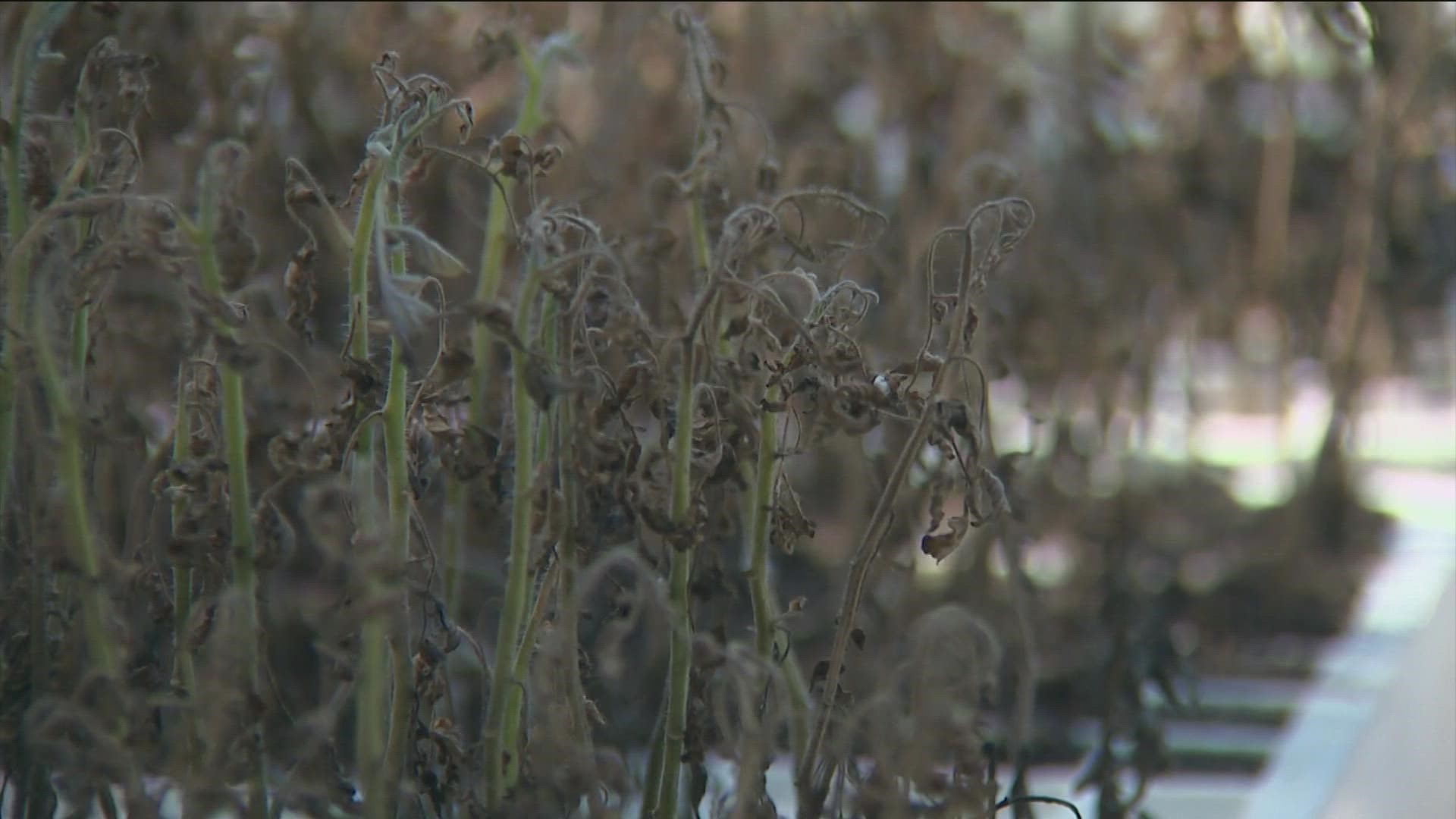TEXAS, USA — Farmers across the nation are expected to have the smallest U.S. cotton crop since 2009, according to a new report from the Texas Farm Bureau.
The report cites data from the U.S. Department of Agriculture's monthly Crop Production report. It states that the crop is forecast to fall to 12.6 million bales, which is down 28% from last year's 17.5 million bales.
The data suggests Texas is currently leading the nearly 5 million bale decrease due to the recent drought conditions. Farmers in the state are currently forecast to harvest 2.9 million bales compared to the 7.7 million bales last year.
Yields for Texas, which is the nation's top cotton-producing state, are predicted to average around 634 pounds per harvested acre, which is down 32 pounds from 2021. Meanwhile, all cotton area harvested is forecast to be 2.2 million, down 3.4 million from last year.
The Texas Farm Bureau reports that drought conditions have been so unfavorable in Texas that cotton farmers are expected to abandon two out of ever three acres planted in the spring. The USDA reports that these abandonment rates would be “historically high.”
“Reduced production from this year’s cotton crop will not only impact farmers who are already facing a challenging time due to drought and high input costs but will also have an impact on the local economies that rely on cotton,” Brant Wilbourn, Texas Farm Bureau associate director of commodity and regulatory activities, said. “As less cotton is produced, downstream users — such as gins, warehouses and shippers — will oversee less cotton. That will lead to a loss of economic activity.”
KVUE spoke to two West Texas farmers who both said that the drought has severely affected their yields this year.
"It has been a struggle with the lack of rainfall to get a good cotton production this year," said Kody Bessent, a cotton farmer with Plains Cotton, based in Lubbock. "While the Rio Grande Valley has received a good harvest this year due to their rainfall, we've not gotten nearly enough rain to help with our drought situation, and it's created an adverse effect on our production."
John Schoepf, who runs a family cotton-growing business in Crosby County roughly 20 minutes east of Lubbock, added that while the drought this year is not like the one in 2011, it will be harder to recover from due to the heightened costs brought on by inflation.
"Oil, natural gas, electricity, all of that will be higher because of inflation," Schoepf said, "and that'll make it harder to recover from this drought than in 2011."
While both farms have invested in drought-resistant crop production, Schoepf said that, ultimately, not only rain but timely rain will help with crop production.
"It don't mean a thing if we don't have rain." Schoepf said. "We don't need much, it just needs to fall at the right time for us to start and grow crops. Some people didn't get the timely rain needed to even start crops, and they're feeling the worst of it."
Read the full Crop Production report here.
PEOPLE ARE ALSO READING:

